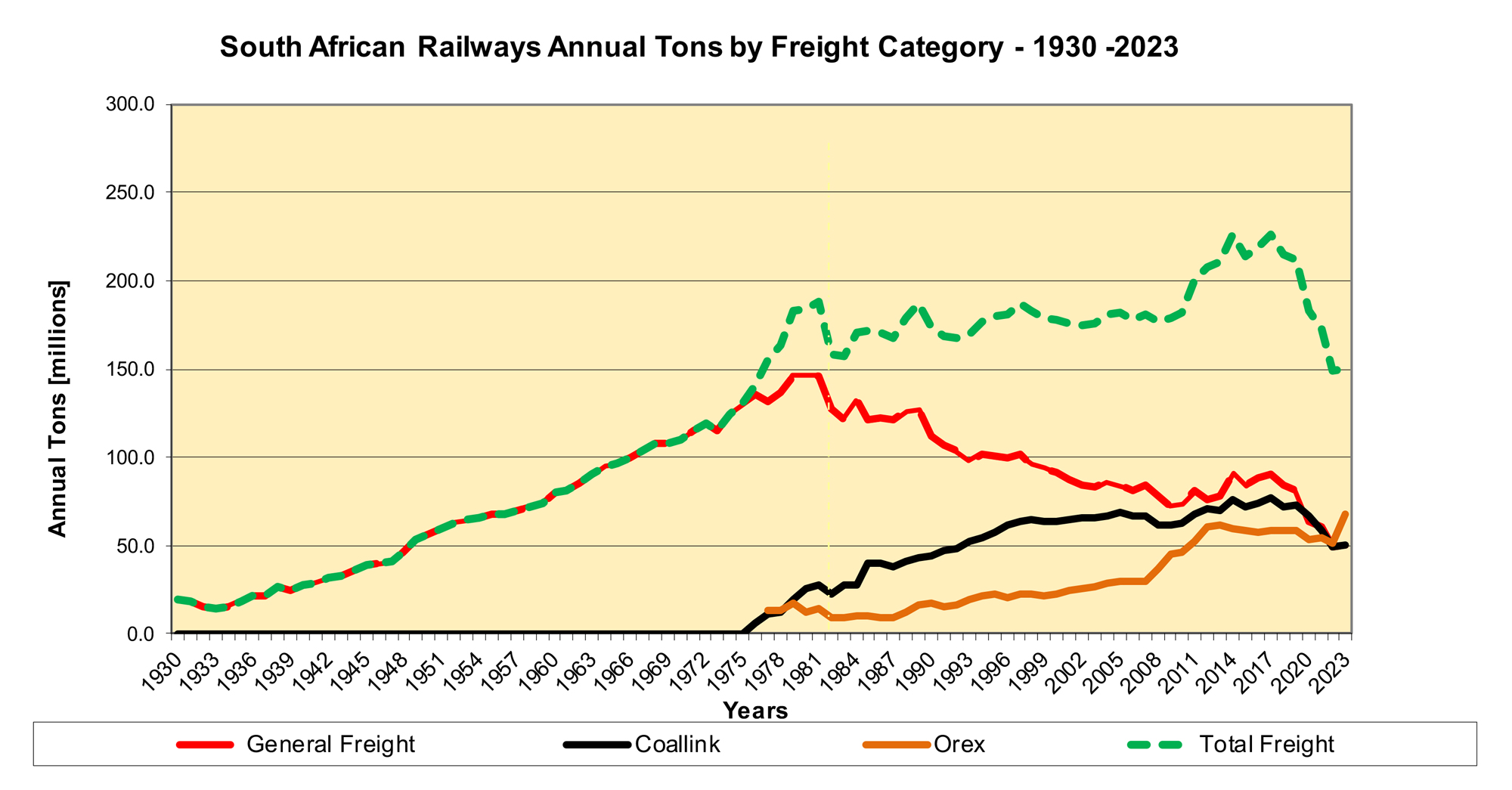An anniversary year… but should we be celebrating?
An anniversary year… but should we be celebrating?
There are some notable anniversaries in South Africa this year – but NICK PORÉE cautions that many are no cause for celebration.
For South Africa, the year 2024 is, in many ways, an “anniversary year” of landmark events in many aspects of life, policy, and particularly transport. It is also an election year, which makes the anniversaries even more relevant as we contemplate the future.
Winston Churchill once said: “The farther backward you can look, the farther forward you are likely to see.” Furthermore, according to Warren Buffett, “The rearview mirror is often clearer than the windscreen.” These statements are certainly relevant to the current situation in the South African freight logistics sector and the economy as a whole.
Anniversaries of note are:
Transport
- 70 years of nationalised transport policy, since 1954 (after 1948 election)
- 30 years of a “government of national unity”, since 1994
- 130 years of government railway (and ports) monopoly, since 1894
- 40 years of no Road Transport Quality System (RTQS) and unregulated commercial road freight transport, since 1984
- 40 years of declining railway and port logistics capacity, since 1984
- 20 years of state-owned corporations (SOCs) as “strategic instruments of industrial policy”, since 2004
- 20 years of moratoriums on illegal over-height containers, since 2004
Economy
- 10 years since gross domestic product (GDP) growth “crashed” in 2014
- 60 years since GDP per capita exceeded the inflation rate in 1964

The economy, as reflected in GDP, grew rapidly from 2002 to 2012, but then entered a period of fluctuating stagnation which is reflected in the state of logistics in all modes.
The impacts of GDP growth have not, unfortunately, been uniformly distributed amongst the population, as it is 60 years since GDP per capita consistently exceeded the inflation rate. The benefits of participation in government and the nationalised industries are very apparent in relation to the wealth and lifestyle of public versus private sector employees and the negative impacts of this on the unemployment rate.
The period 2004 to 2024 has seen 20 years of SOCs as “strategic instruments of industrial policy”. During this period, it has been necessary to support the SOCs with R280 billion in bailouts and no profits. This does not appear to be regarded as sufficient reason for changing to competent, accountable, competitive management – as is done in the private sector.
The year 2024 is the 130th anniversary of nationalised railway and ports provision by government, which was ratified by the formation of the South African Railways & Harbours Administration (SAR&H) after Union in 1910. The nationalised freight transport policy has excluded the private sector from rail and ports, and this has only been alleviated by the past 40 years of unregulated growth of road freight as the primary commercial logistics mode of operation.
The deteriorating performance of the railways for general freight (and more recently all freight) is shown below.

The growth of the road freight industry has been fostered by the absence of competitive commercial rail freight operations. The policy of the railway SOC to convey only trainload bulk is now hampered by declining capacity on the main export lines, due to past managerial decisions and malfeasance. Throwing more money into the deteriorated railway is unlikely to produce commercially competitive rates and services, as any recovery is likely to be slow and expensive. If tariffs are to be set to recover the R47 billion “recapitalisation”, this may have disastrous consequences for several export industries and serious impacts on the economy. The short-term impact on road freight has been a dramatic expansion of bulk tipper transport on contracts to mines for export of minerals, and severe congestion at ports and borders.
The current logistics crisis is being addressed by a government roadmap, which was to fundamentally reform the freight logistics sector by October 2023. The ponderous process has yet to engage the serious attention of the very busy commercial road freight logistics industry and its many customers, which keep the South African economy afloat. The debates around the restructuring of railways follow the announcement by the president of “open access” for private sector train operations, but this is being strenuously resisted in the same way as past attempts to rationalise transport policy.
The Department of Transport, which is notionally supposed to develop national transport policy, continues to ignore the several studies which it has commissioned over the past 12 years and is seeking information and opinions about the future of rail policy. The process is likely to be hampered or subverted by the very limited number of multimodal supply chain experts with international commercial railway logistics experience. It will also be skewed by the efforts to retain the national rail monopoly and will likely be impeded by the fundamental disdain and indifference of the department to the impacts of bad policy on commercial transport.
This year is also the 20th anniversary of the first report recommending a change of vehicle height to permit high-cube containers. Although still illegal – after about 16 years of moratoriums and over 30 million moves – the issue is simply ignored, as are the growing problems with other impractical road transport legislation. In addition, the Road Freight Strategy approved by Cabinet in 2017 has been binned by the department.
By the time this article is read, the results of the elections will be out, and we will know whether to uncork the champagne, or simply sit and contemplate what might have been.
Published by
Nick Porée
focusmagsa




